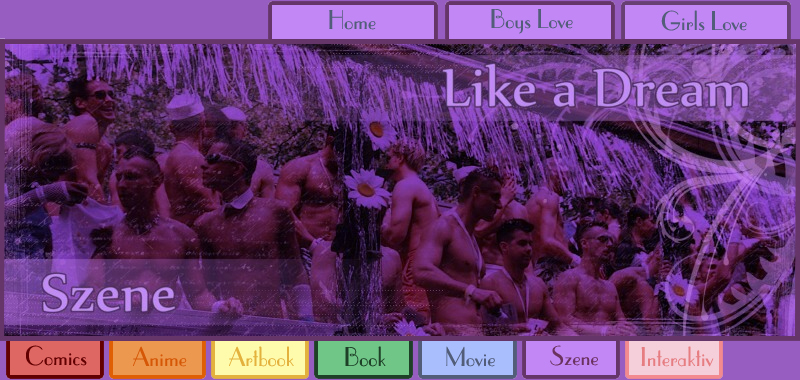
Interview- Floortje Zwigtman
Anmerkung:
Floortje Zwigtman ist eine niederländische Autorin, daher ist das
Originalinterview in englisch geführt worden und wurde anschließend übersetzt.
Trotz allem kann man auch das englische Originalinterview auf "Like a
Dream" lesen.
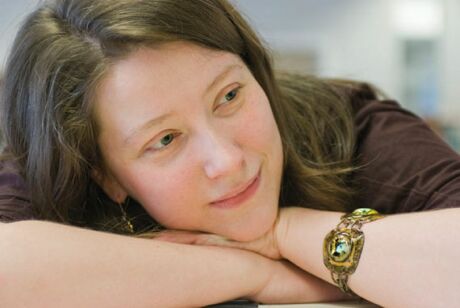 |
Name: Floortje Zwigtman
Contact: -
Homepage: www.floortjezwigtman.nl
Work: Autorin
Publications: Adrian Mayfield- Trilogie, Wolfsrudel, Wie Sonne und Mond
You are quite unknown to Manga/Anime fans and should therefore introduce yourself shortly to the German readers.
Hm, how to do this? I’m 36 years old, I don’t write Manga, but it appears my novels appeal
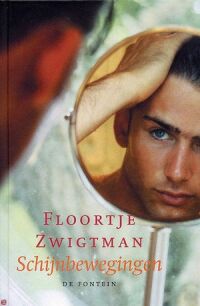 to Manga-fans. There are a lot of drawings in the Manga-style around on the web, made by fans….
to Manga-fans. There are a lot of drawings in the Manga-style around on the web, made by fans….
I lead two lives: one in the so called reality, one in my head. They are both taxing…
Please tell us a little bit about yourself. What do you do in your leisure time?
In my leisure time I write! I have a full time day job as a writer of educational materials, in the evenings I write my novels. I even keep a note book beside my bed, in case I wake up with a good idea in the middle of the night.
When did you start writing?
Before I even could read or write! I was always making up stories as a little girl, telling them to anyone who would listen or just to myself. I was such a chatterbox my mother once asked: ‘Don’t you EVER get tired from talking?’ When I was a little older, I started drawing my stories and when I learned to write at school, I started writing them down.
What about starting writing at all? What was your intention?
I never considered writing a serious carrier opportunity, until I was so fed up with what was then my day job, I asked a friend of mine, who taught literature, to read a manuscript I wrote: did he think it good enough to be published? He thought so and I took the chance and sent it to a publisher. Two days later they rung me up, wanting to publish my novel. I was never so surprised in my life. I remember thinking: I have absolutely no idea what my life is going to be like from now on.
and sent it to a publisher. Two days later they rung me up, wanting to publish my novel. I was never so surprised in my life. I remember thinking: I have absolutely no idea what my life is going to be like from now on.
Did you learn to write by yourself or did you learn it anywhere else?
Did you do studies of history or literature?
I never took creative writing courses. Not because I’m especially pig headed and won’t listen to anyone’s advice, but because I listen to other people’s advice too much. In consequence I made some mistakes, but at least it were my mistakes, and not someone else’s.
I chose to study teaching, because of the long holiday’s teachers have. ;-) I should have chosen history or literature.
How much time do you spend writing a book? Do you follow certain procedures or does it change for each single book?
Writing the kind of novels I write takes a long time. Most of it is research: I need to know a lot about the times, people and places I write about. Research takes about 2 years, and continues while writing, because there always pop up things I don’t know. The actual writing of the novel takes about 2 or 3 years. I’m a slow writer, sometimes pondering a sentence for a day before writing it down. But on the upside, I rarely write third or fourth versions. The first or second is usually the best.
Have already other books of you been published? If so, have they been 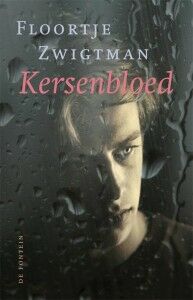 published also in other countries outside the Netherlands?
published also in other countries outside the Netherlands?
Before the trilogy about Adrian I wrote two other books, they are both published in Germany: Wie Sonne und Mond and Wolfsrudel. There are also Danish and Korean translations. We’re now working on an English translation.
Do other novels or short stories refer to „Adrian Mayfield“?
There is one, a kind of ‘prequel’ to the trilogy, by the title of ‘Kersenbloed’ (Cherry Blood). It deals with the school years of Vincent, Adrians lover. It has not been translated into German, yet.
„Adrian Mayfield“ is your first trilogy in the young-adult-area. What about having the idea for this story?
I always wanted to write a novel set in the decadent years of the 19th century. Since reading ‘The Picture of Dorian Gray’, Oscar Wilde’s only novel, I’ve been captivated by this colourful time, so restricted and so rebellious at the same time. Also I wanted to write a novel about growing up, emotionally and sexually, with a difference.
Did you plan your trilogy from the beginning onwards or did it come up by continuing the story?
I knew where the romance between Adrian and Vincent would lead them both, and what it would do to Adrian. I always have a reference point while writing, but the way there is for me just as surprising as it is for the reader. I wouldn’t have it any other way. If I knew every scene I was going to write, I would be bored.
How much time did you spend on the neccessary research and did you spend some time in London or Paris for doing some research there?
Researching is a long, intense process. It involves a lot of reading, playing the detective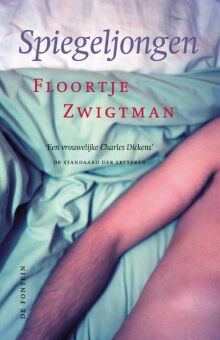 in old books. But also more exiting visits to London and Paris. I visited most of the places I wrote about (even the Café Royal, a few years before it closed for good), if they are still standing. I used old (19th century) travel guides for getting around the cities. That was fun, but I also had some nasty surprises. The Parisian labyrinth I wanted Vincent and Adrian to get lost in, turned out to be tiny! Impossible to get lost in. I had to rewrite an entire chapter!
in old books. But also more exiting visits to London and Paris. I visited most of the places I wrote about (even the Café Royal, a few years before it closed for good), if they are still standing. I used old (19th century) travel guides for getting around the cities. That was fun, but I also had some nasty surprises. The Parisian labyrinth I wanted Vincent and Adrian to get lost in, turned out to be tiny! Impossible to get lost in. I had to rewrite an entire chapter!
Was it difficult for you to combine the life of fictive characters with those of historical personalities? What is that interesting in this combination?
It was fun. I’ve read a lot of biographies of Wilde, his lover Bosie and his other friends, so I got to know them pretty well. Then I introduced my invented characters to them and imagined how they would react to each other.
How did the setting come up (Wilde, the process, etc.)?
As a teenager I imagined the 19th century as a dull age, where nobody did anything crazy. Therefore it came as a surprise to me that somebody like Oscar Wilde lead such a wild life. The story of his conviction for ‘gross indecency’ always stayed with me. I wanted to write about people leading alternative lives in that ‘dull’ 19th century.
Why the 19th century? What is that much interesting in this era?
I hinted at it above: I like the friction between tradition and the new world of free art,
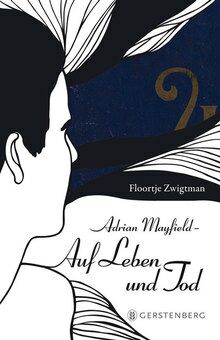 free sexuality, free women and free queers that was peeping round the corner.
free sexuality, free women and free queers that was peeping round the corner.
At the beginning Adrian is getting very familiar to Oscar Wilde and his puple royal household don’t you think that it happens to fast for a boy deriving from narrow circumstances?
Not really, I think. It could have happened. There were several ways of getting on in the world in the 19th century when you were not born rich or titled: money making, pure talent or sex. Adrian has some talent and is sexually attractive, so he is noticed by men with the power to make him a successful model or rent boy.
In the course of the history Adrian is going through different situations, he fell in love, he had his head in cloud 7 and then lost the ground beneath his feet. In volume 3 he partially disappeared as Adrian who was known in the first two books. How could this happen?
Some of the anger and despair Adrian is feeling when being betrayed, is already apparent in volume 1, when his friends leave him and he has to sell his body to survive. Then he sees Vincent as his saviour. When he leaves him, he loses all sense of safety and security. All the anger at being left alone again, resurfaces.
What about Vincent? What was the reason to dismiss Adrian finally? What happened in his schooldays or youth?
I don’t want to betray too much. But Vincent has had a rather traumatic youth at a British boarding school. His first sexual experience with boys was not a positive one. This makes him very ambivalent about his own sexuality.
What about the life of Oscar Wilde later on in your opinion if he had not been brought to court and convicted? How would his works look like?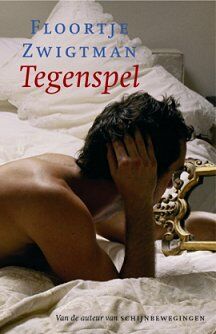
Hard to tell, really. With the life he lead, in the age he lived in, it’s hard to imagine him not being convicted… I think his lot would have been that of every aging artist: he would have gone out of fashion, to be mocked and parodied, to be rediscovered as an old men, or after his death… But maybe not, Wilde had such a gift of reinventing himself again and again, he would have probably stayed in fashion until well in the 20th century. Sadly, he died in the first year of the new century.
Might it be possible for you to pick up subsequent episodes of Adrian’s, Terry’s or Vincent’s life later on? The era after the turn of the century was very eventful (vehicles, mechanization, 1. World War). Would that be enough information to write something with regard to Adrian as adult?
I know they will have some adventures, together or separately, but the most important, the formative events, in their lives I have already described. Adrians story is a coming of age-story. And he is now of age. Although his life moves on, the story is told.
Why taking a homosexuell main character?
I was interested in people choosing a completely different lifestyle in that strict, Victorian age. I wondered how it would be to be a boy loving boys at a time in history when loving boys was not only a sin but also a criminal offence.
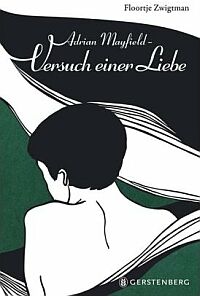 Strangely enough, I first wanted to tell the story from the point of view of a lesbian girl. (I’m telling you a secret now: it was Imogen!) But the story remained too static, because Victorian girls were hardly allowed out of the house unchaperoned. When I chose a boy as the main character the story suddenly got wings.
Strangely enough, I first wanted to tell the story from the point of view of a lesbian girl. (I’m telling you a secret now: it was Imogen!) But the story remained too static, because Victorian girls were hardly allowed out of the house unchaperoned. When I chose a boy as the main character the story suddenly got wings.
Was it difficult to inspire a publisher for this series? After all it seems to be difficult to place stories with characters having homosexuell background.
In Holland that was not a problem, because I had already published a number of rather successful novels and because we are fairly liberal here. But in other countries, like Great Brittain and the United States, it still is a problem. Publishers are hesitant to take on a Young Adult novel about a homosexual boy (and certainly a rent boy!)
Did you have lessons outside the Netherlands with Adrian Mayfield? How do your fans react?
I have not been on a tour abroad with the Adrian books yet. But I do get letters and e-mails from readers. And I always try to answer them. What surprises me is the way the main characters come alive for many readers. They really care about them and want the best for them. I even got threatened once –more or less- that I’d better write a happy ending!
With which character of your novel are you able to identify? Which is the most unfriendly to you?
I like Trops very much, although he is not at all like me. He is such a likeable bastard. I think I identify most with Adrian, always going down, always getting up, because he cannot help but love life and hope for the best.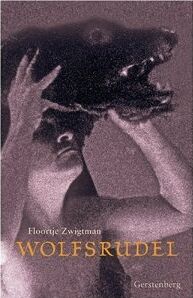
There is not one character I don’t like. I like all of them, even the bastards and bitches, because I more or less invented them. I even love Lady Kinderly.
Are there any genres you would like to devote? May we expect further historical books of you?
Not for the moment, no. I just want to give my imagination free reign in my next novel. It is set in an imaginary country, although it’s not fantasy, in a time I remember as a child. It’s a novel about growing up in a totalitarian country, and what it does to the minds of ordinary people and those in power.
Can you imagine to go on writing books of homosexual characters? This might be a potential
subject.
There are one homosexual man and two lesbian girls in my next novel. But homosexuality will not be such an important theme as in the Adrian novels. They are more characters who happen to love their own sex.
What are your plans for the future?
Keep on writing, as long as I like doing it. Translating  the trilogy into English and selling it to a British or American publisher of adult fiction. Visiting the beautiful and the ugly places in the world.
the trilogy into English and selling it to a British or American publisher of adult fiction. Visiting the beautiful and the ugly places in the world.
What kind of books or spezial authors do you like?
I read about every genre there is! I especially like authors who have a gift with language. Who make you not only enjoy the story line, but also individual sentences. I’ve read a lot of David Mitchell lately (Cloud Atlas for instance) and I’m now rereading Roald Dahl.
Is there anything else to tell your German fans?
How wonderful and strange it is to know that people in another country, who live different lives from you, share the same fictional world with you. Love to you all!
Thanks a lot for this interview.
"Like a Dream" wants to thank Floortje Zwigtman for the great interview and VBK|Media for the photo of Floortje Zwigtman.
Bildcopyright:
Die im Zusammenhang mit diesem Artikel verwendeten Bilder und Coverscans
unterliegen dem Copyright von Floortje Zwigtman, dem Gerstenberg Verlag und Uitgeverij
De Fontein.
